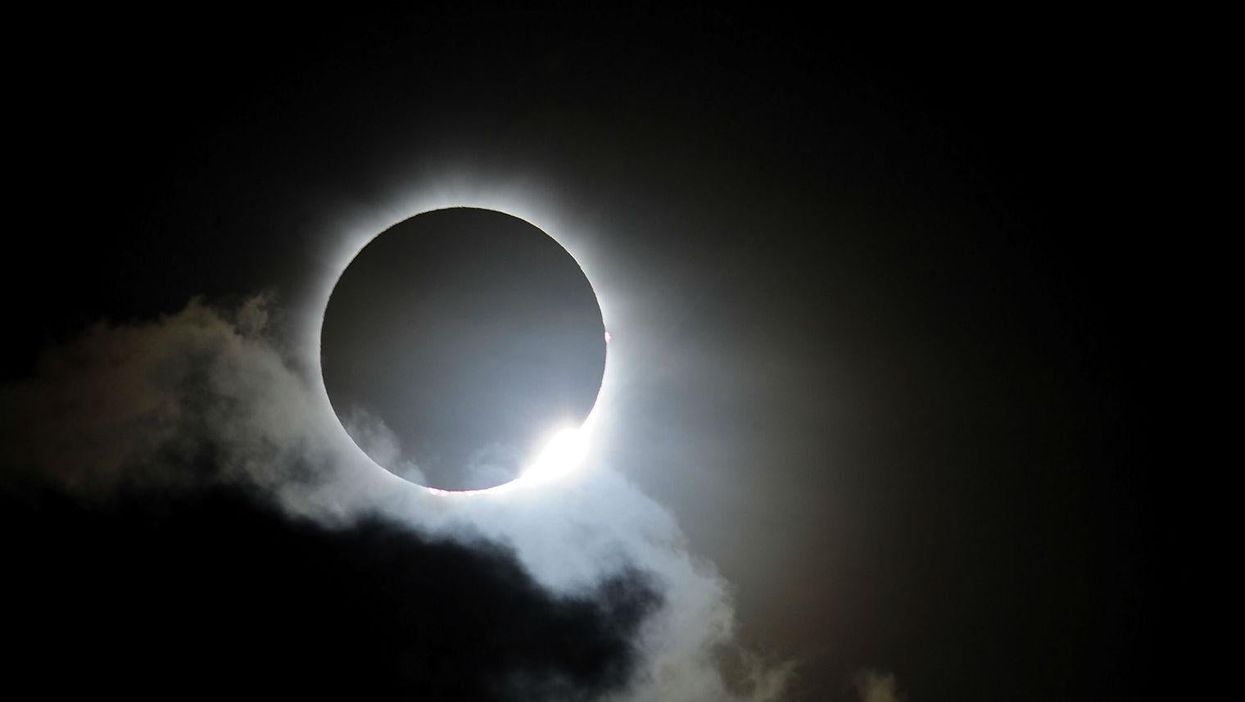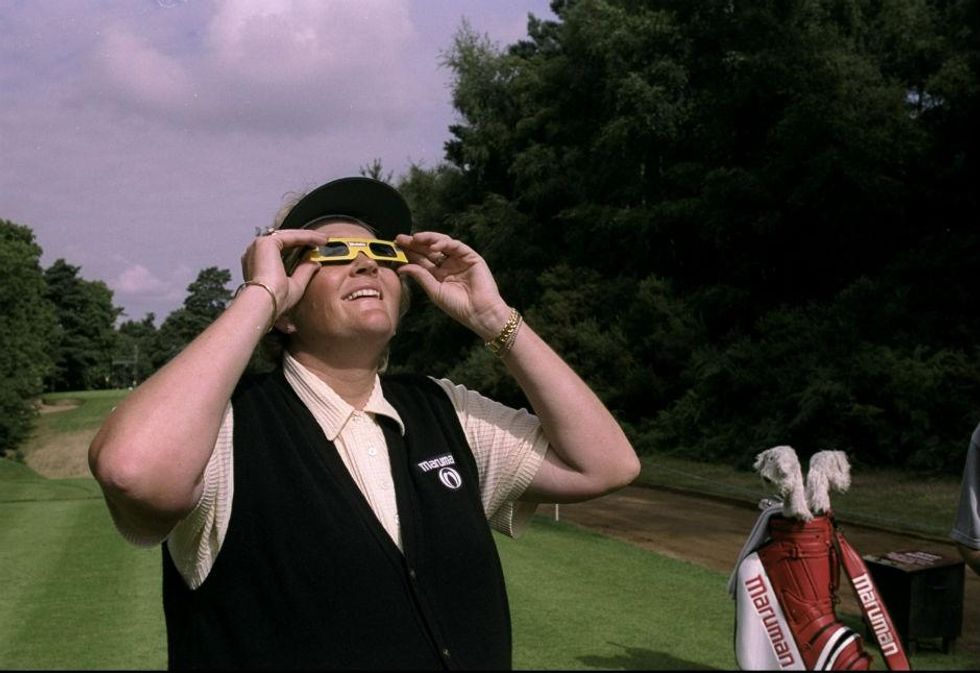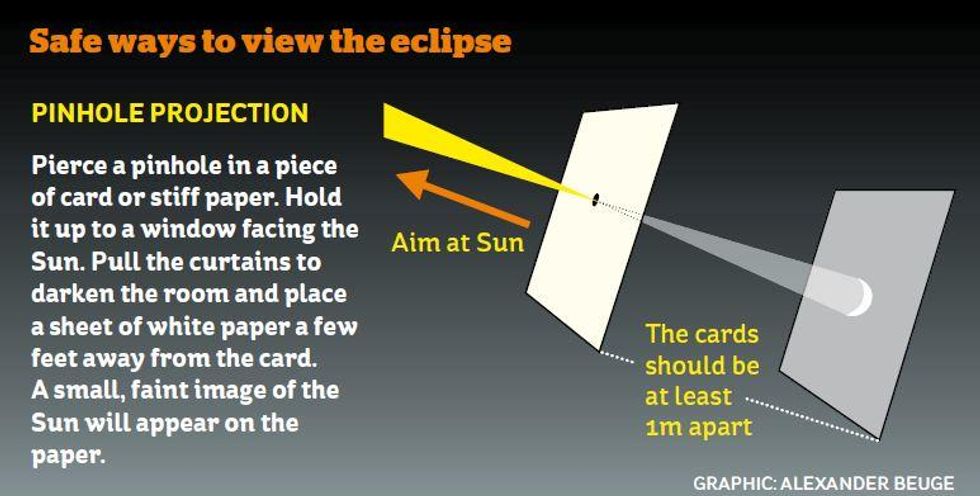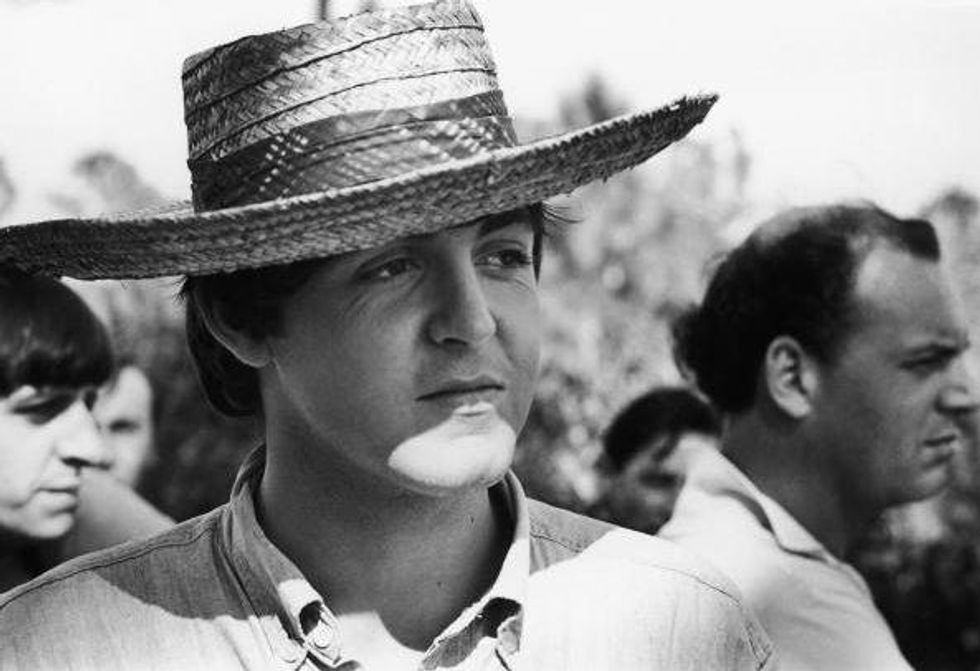News
Evan Bartlett
Mar 19, 2015

Britain will be witnessing a solar eclipse from around 8.30am on Friday as the Moon moves between the Earth and the Sun.
Although the very far north of Scotland is the best place to watch it, even those on the south coast will see at least an 85 per cent covering.
And because doctors are worried about people taking "eclipse selfies" and hurting their eyes, we've put together this list of ways to safely watch the sun go dark.
With some snazzy safety glasses
As modelled above by golfer Laura Davies in 1999, solar glasses are the easiest way to safely watch the eclipse. However, with such short notice, supplies may be short and prices are likely to be high in shops. Warning: regular sunglasses are not up to the job.
With two pieces of card
Build yourself a shoebox camera
Like so...
With a colander
If your arts and crafts skills leave something to be desired, get yourself into the kitchen and grab a colander. Yes, really. According to the Royal Astronomical Society, the colander is "by far the simplest way to view an eclipse". Stand with your back to the sun with a colander in one hand and a piece of paper in the other. Then "safely observe many images of the eclipse on one piece of paper!"
With a straw hat
If your culinary skills aren't up to much either, a "loosely woven straw hat" held about a metre from a piece of paper will create a similar effect, according to Nasa.
Watch it online
If you really can't be bothered in fashioning your own observation device, you can always watch the eclipse online. Community observatory Slooh.com will be live streaming from the Faroe Islands - where there will be a near 100 per cent eclipse - from 8.30am (GMT).
Failing all this, the weather forecast is for clouds, in which case you can store this advice for the next solar eclipse in Europe in 2026.
Top 100
The Conversation (0)

















